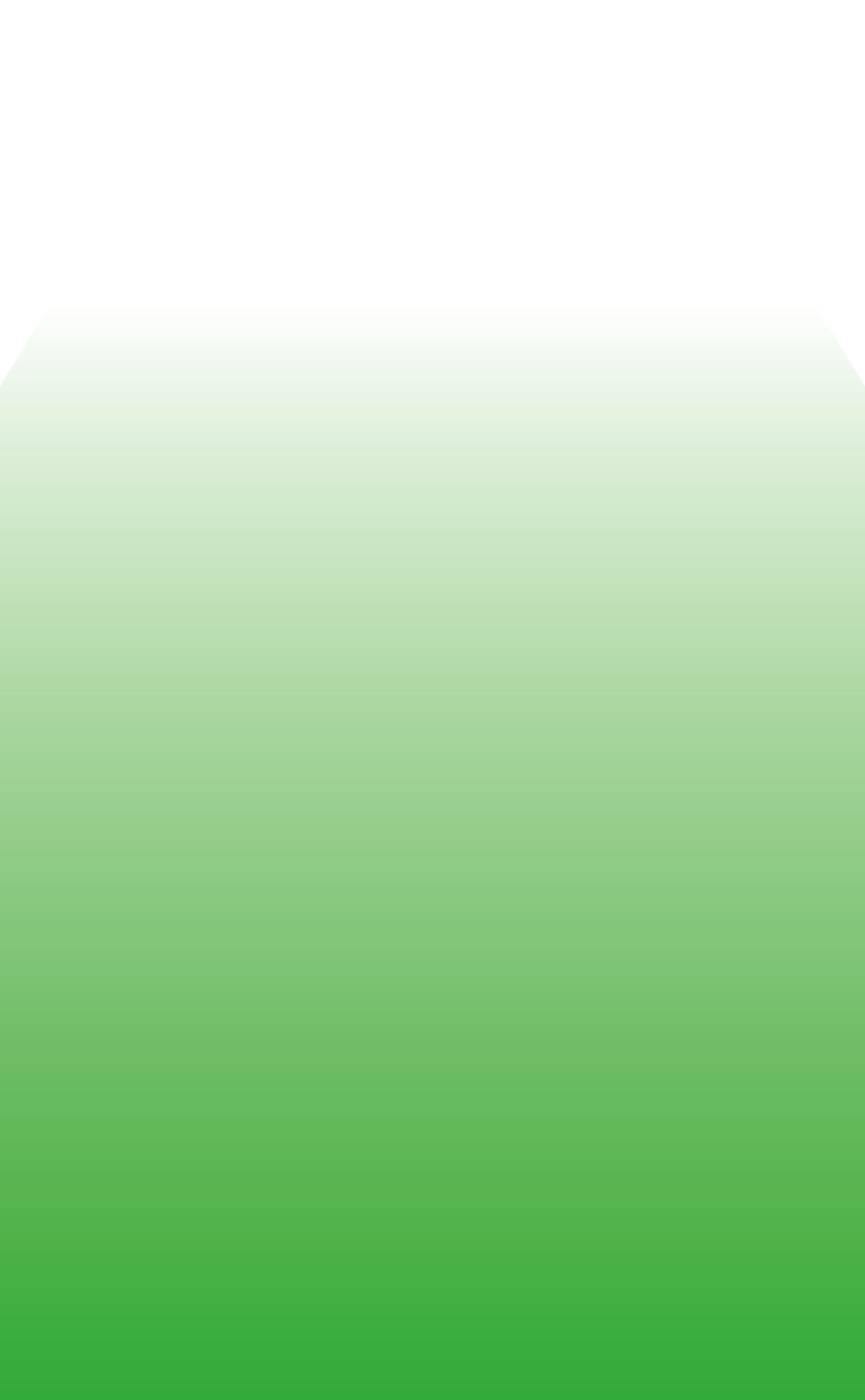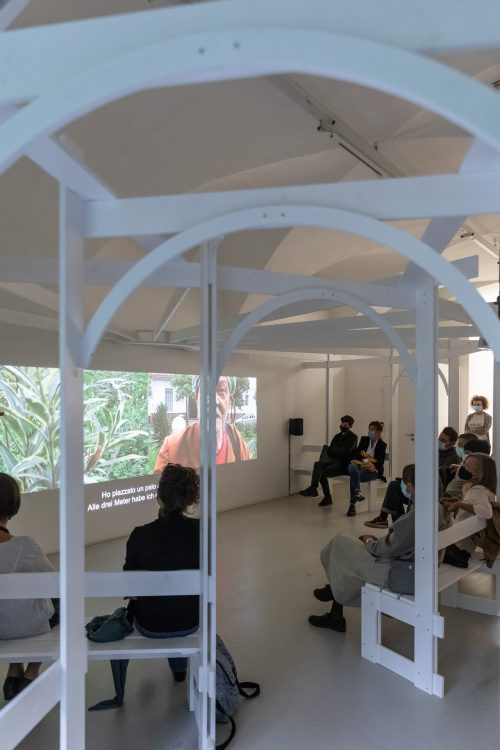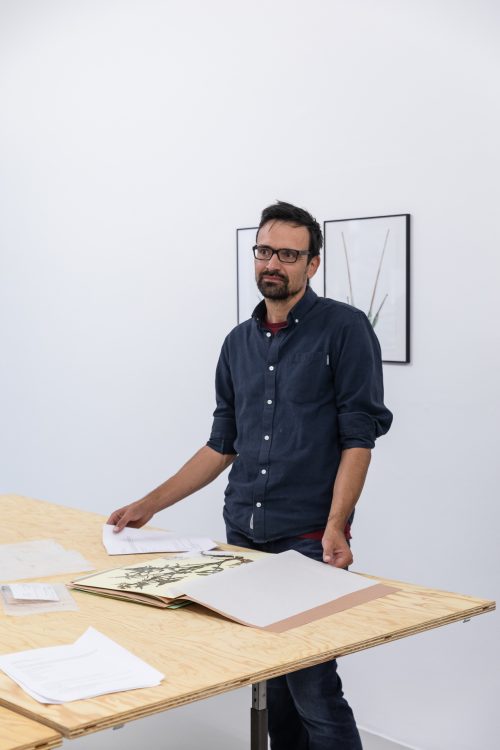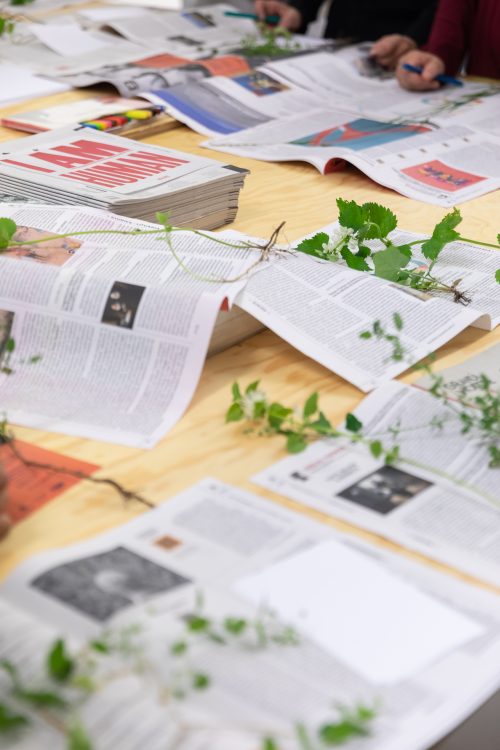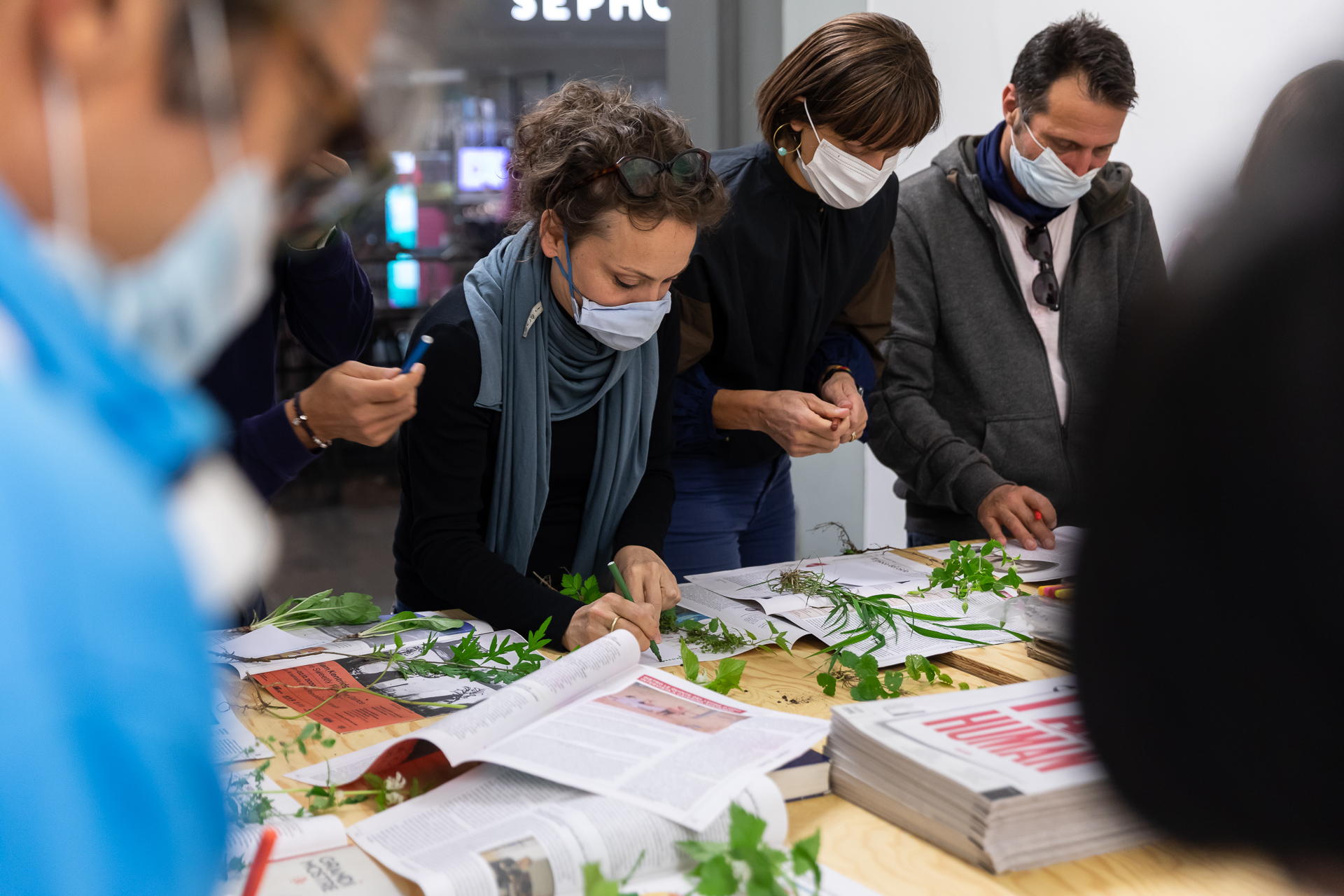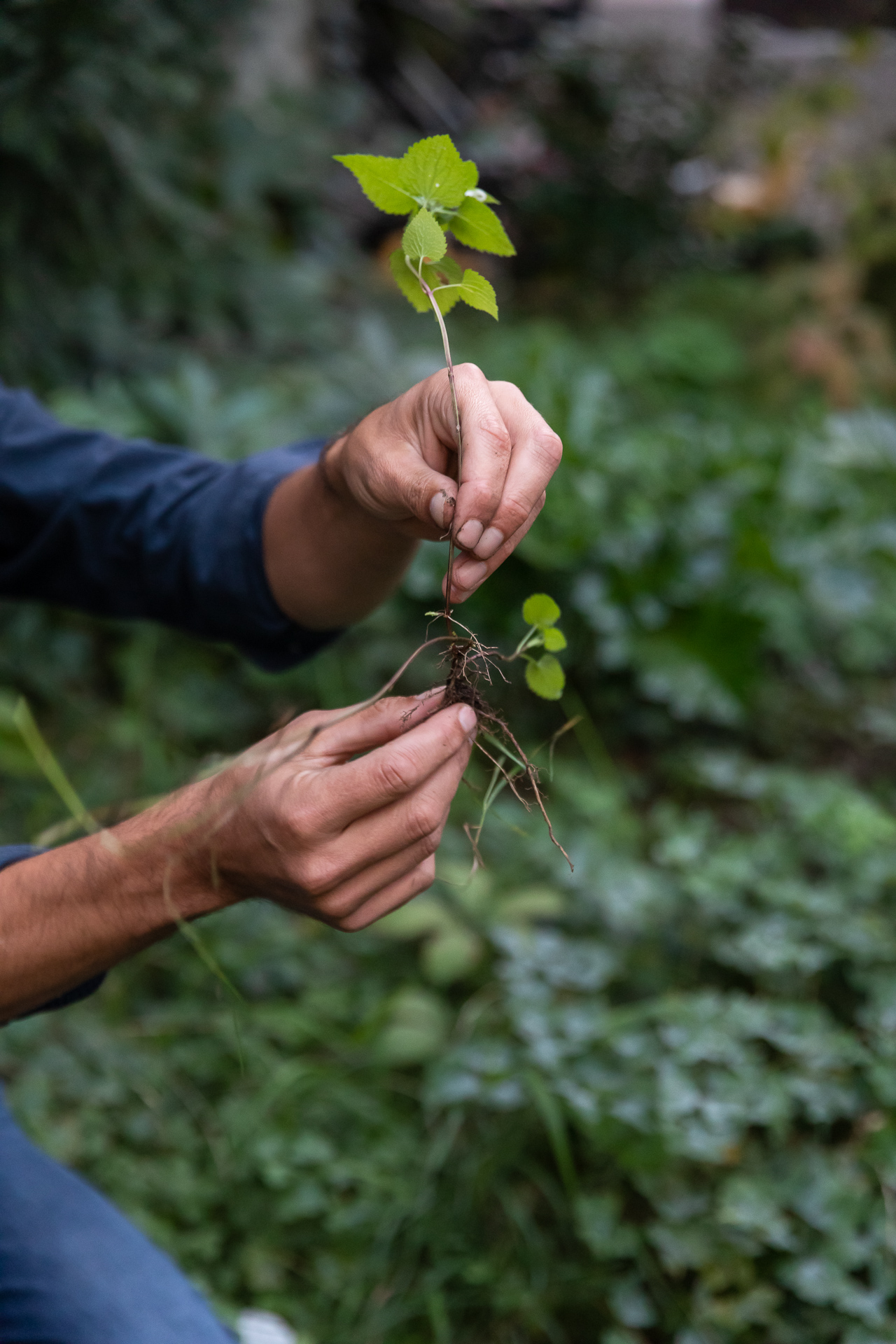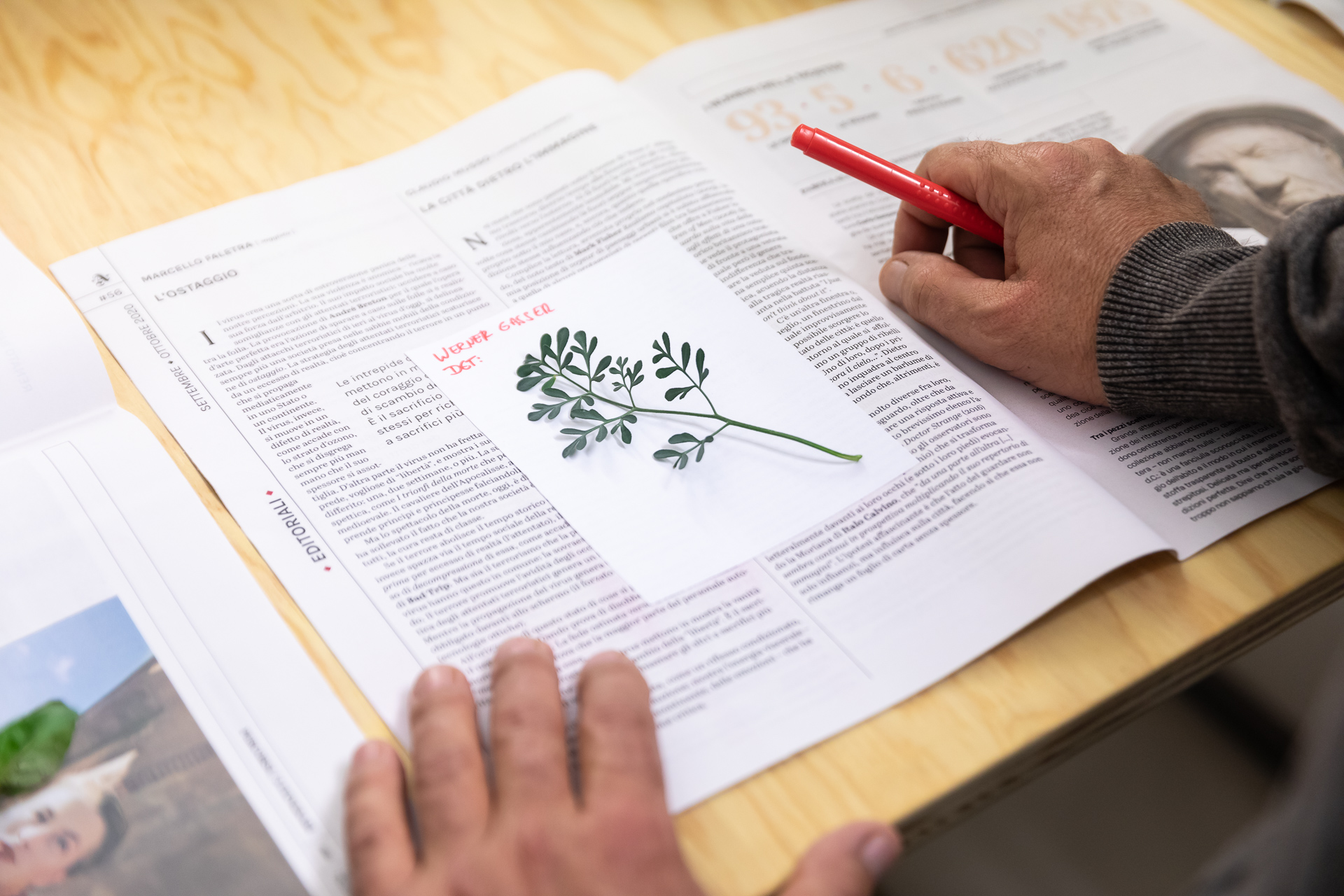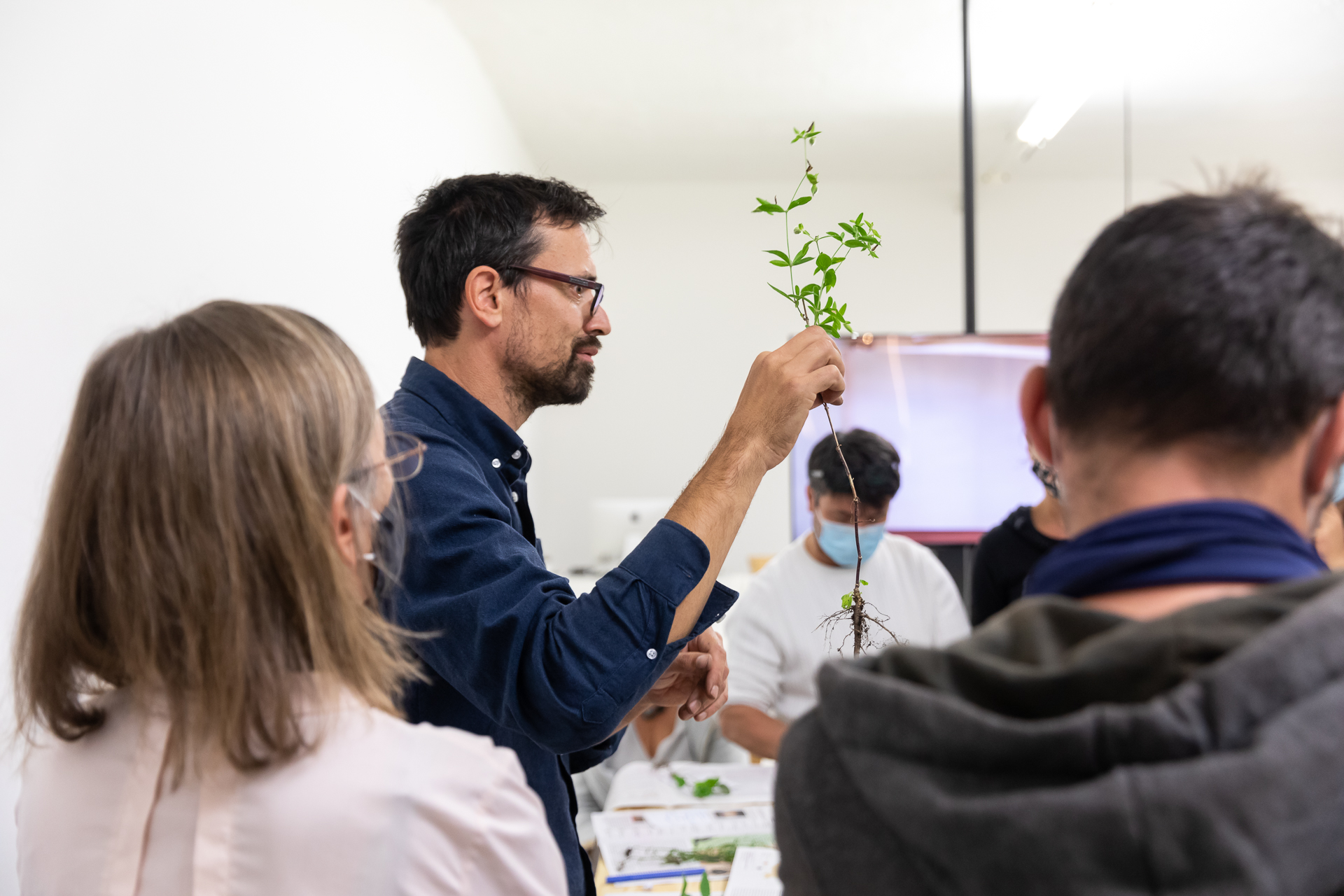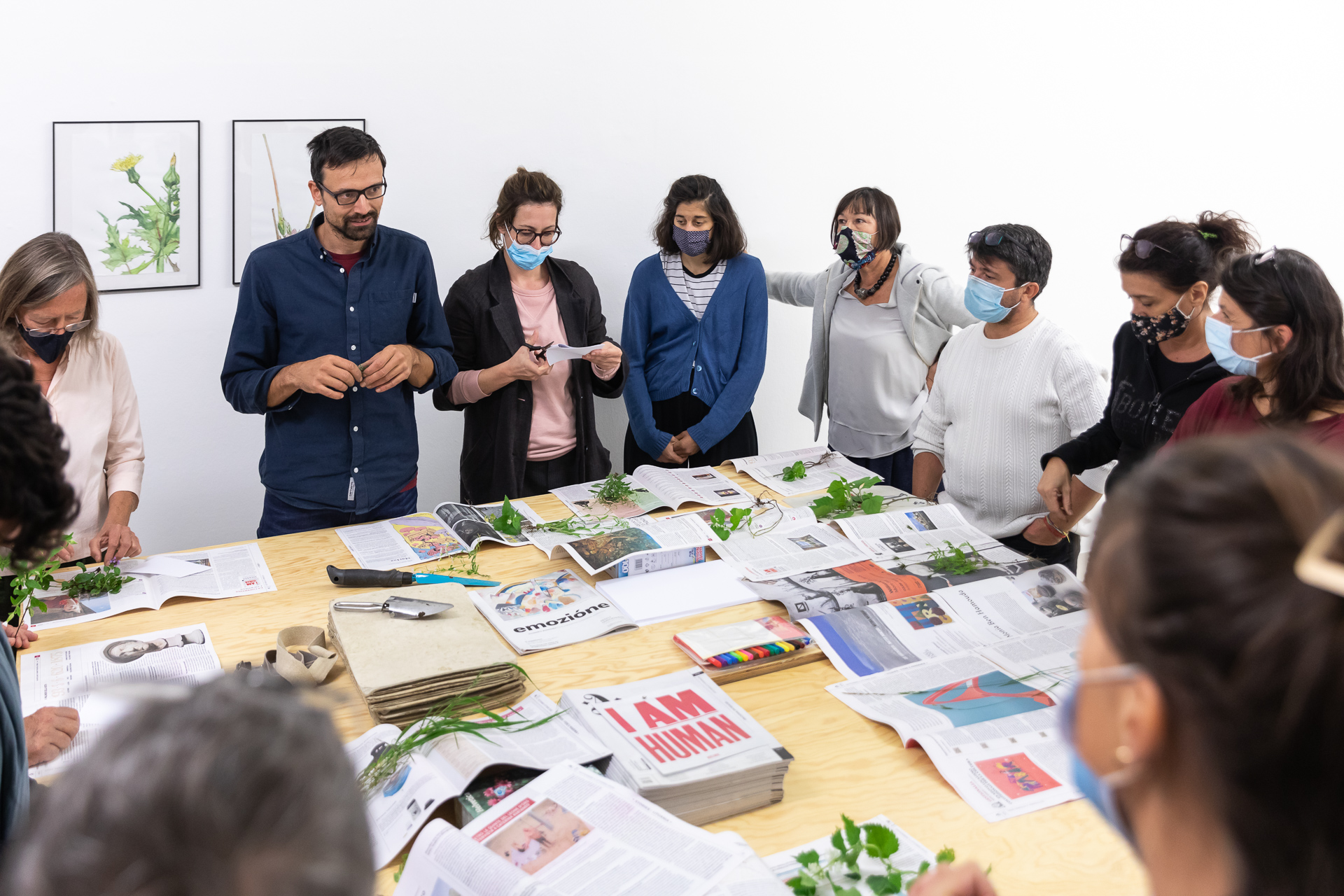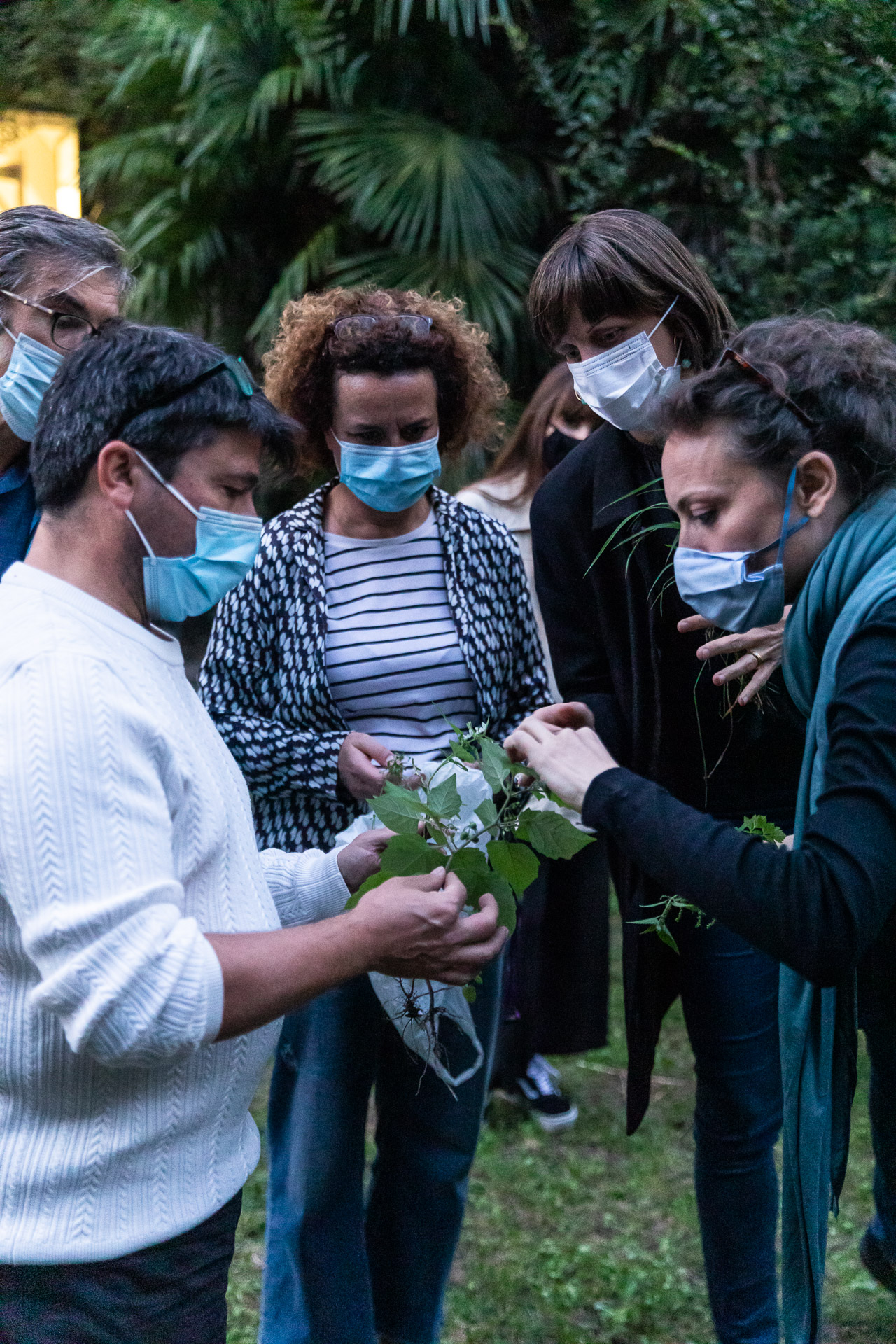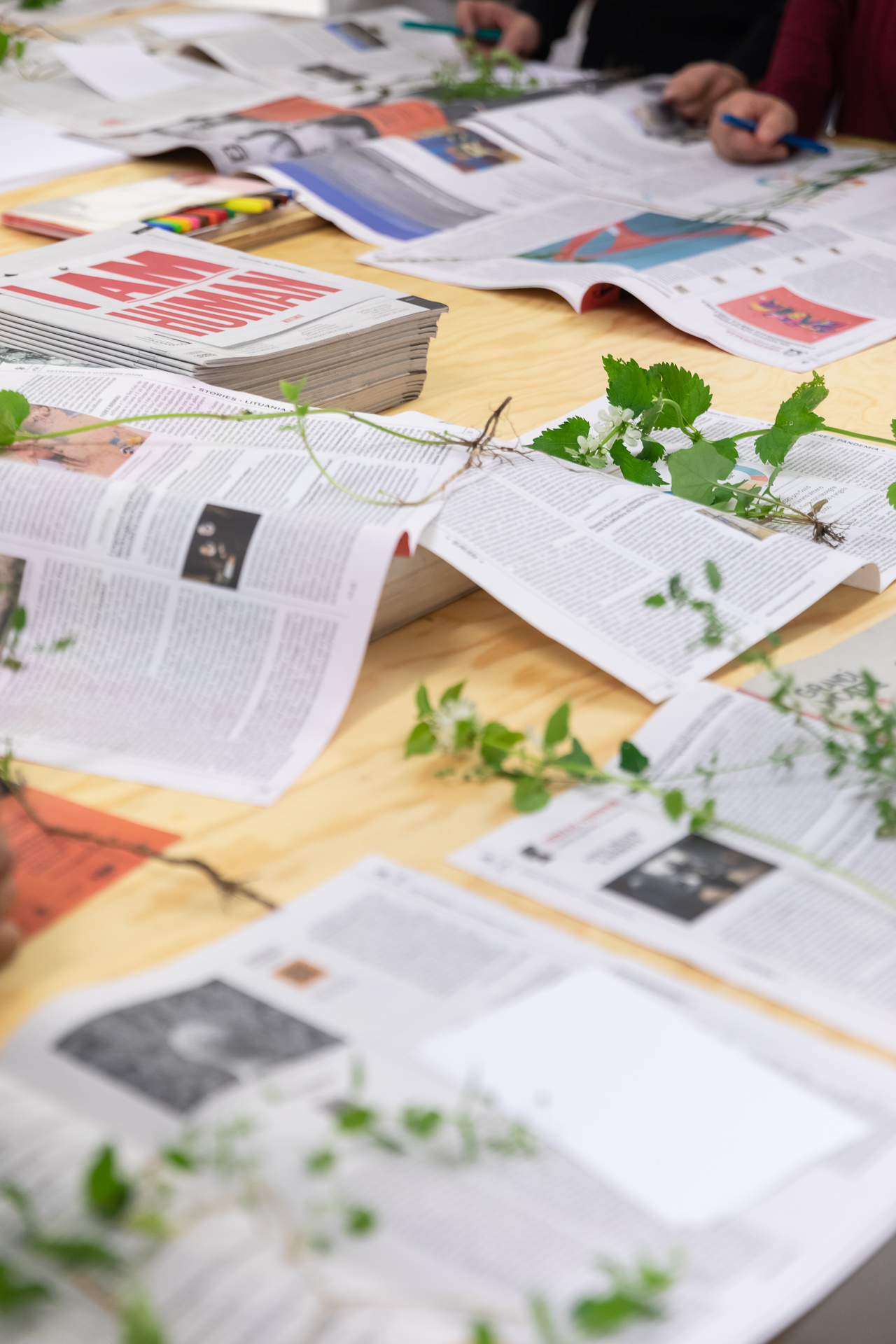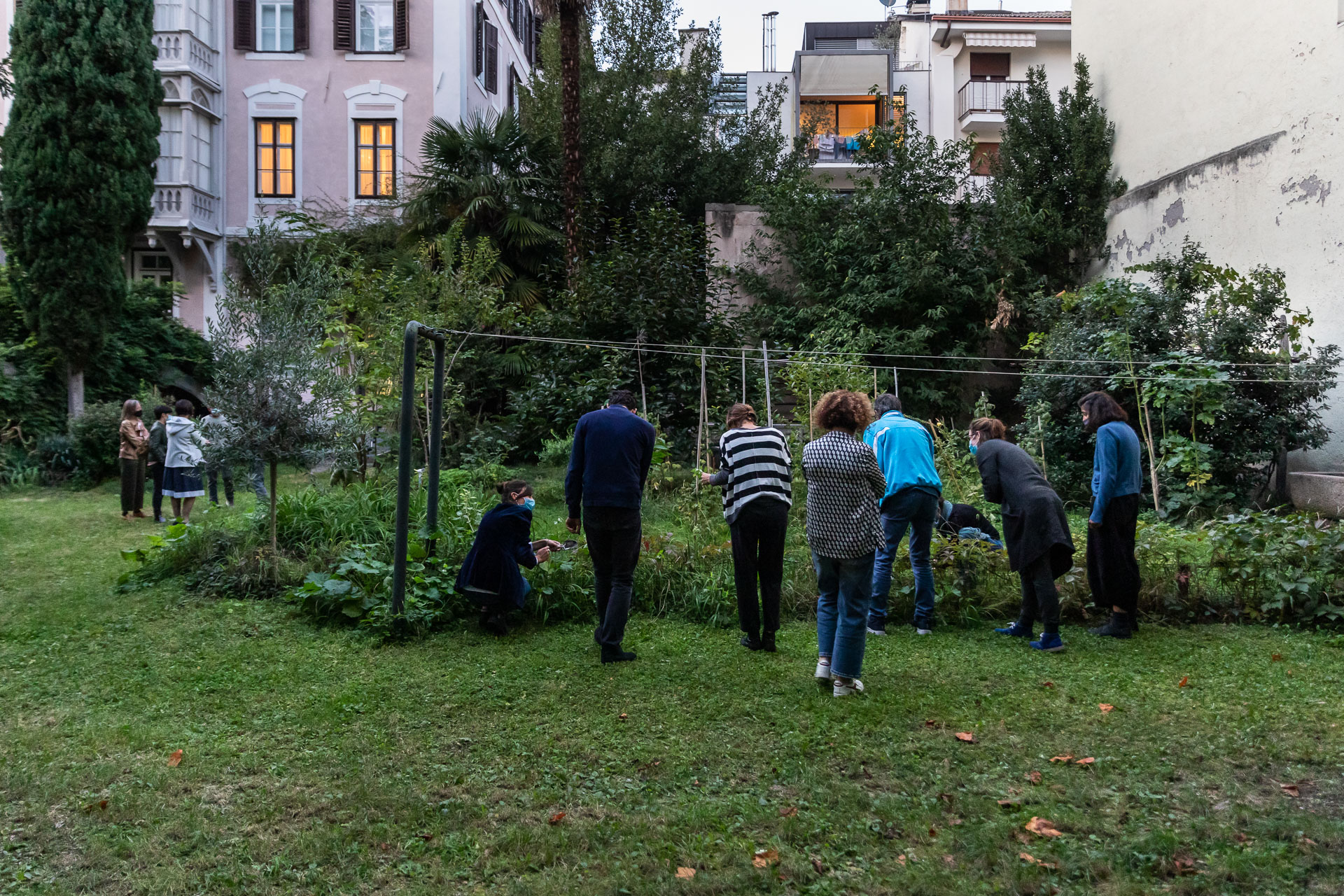Die Ausstellung Brutal Family Roots des franko-algerischen Künstlers Mohamed Bourouissa macht Formen der Zusammenarbeit und Dialog mit unterschiedlichen Subjektivitäten sichtbar: neben einem Psychiater und einem Passanten verleiht er der Pflanze eine wichtige Stimme. Den Künstler interessieren Migrationsumstände von Pflanzenarten, ihre historischen Verbindungen mit kolonialen Expeditionen und die trennende Einteilung in heimische, fremde und invasive Arten. In der Videoinstallation Incomplete Herbarium (2020) ergänzt der Künstler ein in der öffentlichen Bibliothek von Blida gefundenes anonymes Herbarium und hinterfragt Kategorisierungen und Taxonomien.
Auch die Flora in Bozen besteht zu großen Teilen aus nicht autochthonen Pflanzen, die Fragen zu Herkunft, Zugehörigkeit und das Einteilen in Kategorien aufwerfen.
Gemeinsam mit dem Botaniker Andreas Hilpold (Institut für Alpine Umwelt, Eurac Bozen) und der Botanikerin Petra Mair (Naturmuseum Südtirol) nähern sich die Workshop TeilnehmerInnen dem Prozess des Herbarisierens – Pflanzen werden gesammelt, gepresst und bestimmt.
Was sind Herbarbelege? Welche Fundumstände werden beim Sammeln dokumentiert? Was bedeutet es ein Herbarium zu kuratieren?
Der Herbarium Workshop ist Teil der Workshop-Serie savoir-vivre, die ausgehend vom Ausstellungsprogramm konzipiert ist. Inspiriert von der Relektüre der Begriffe “savoir/pouvoir” von Gayatri Spivak, einer Mitbegründerin der postkolonialen Theorie, wird wissen nicht nur mit Macht, sondern mit können (pouvoir/ to be able to) verknüpft. Durch die Verbindung der beiden Verben, wird die Institution als Handlungsraum gelesen, wo unterschiedliche Fähigkeiten und Kompetenzen ein kollektives Wissen produzieren.
